
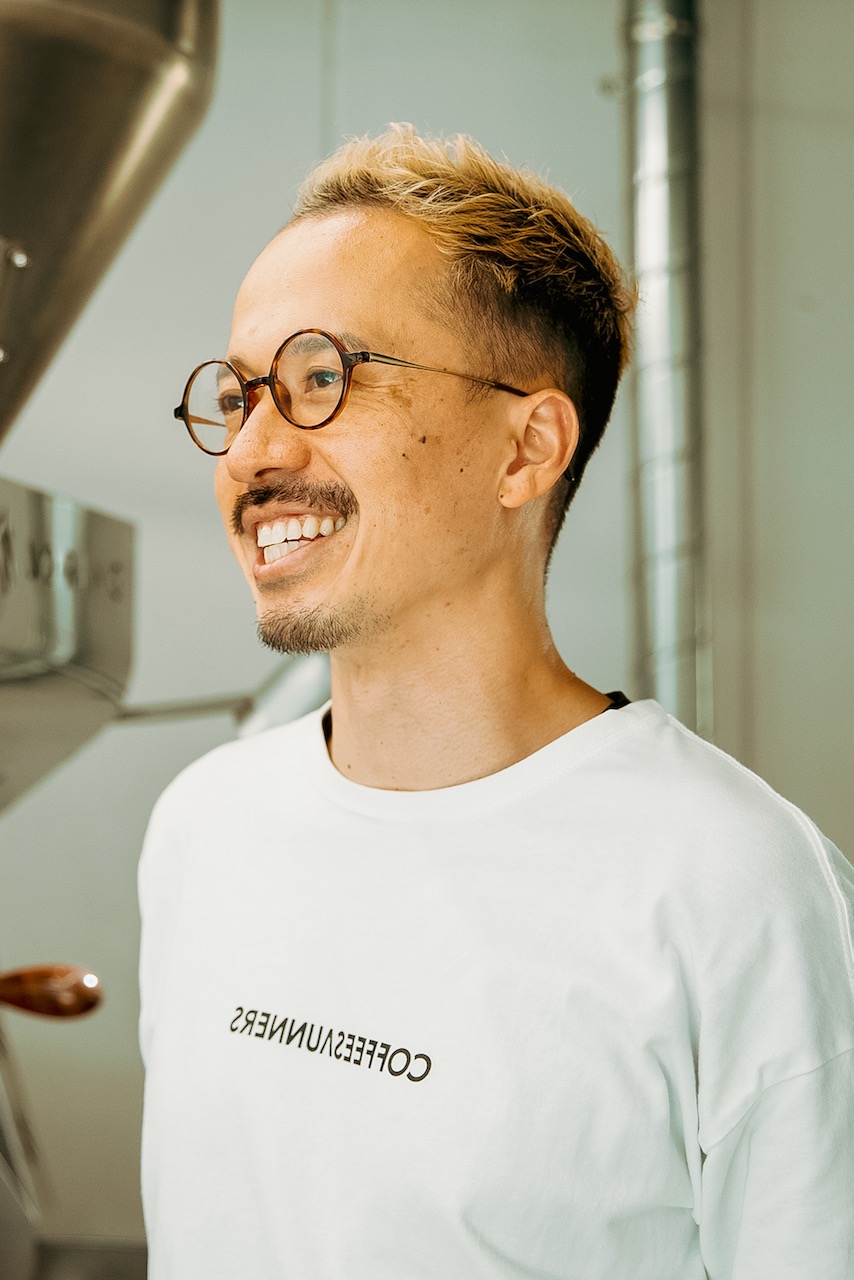
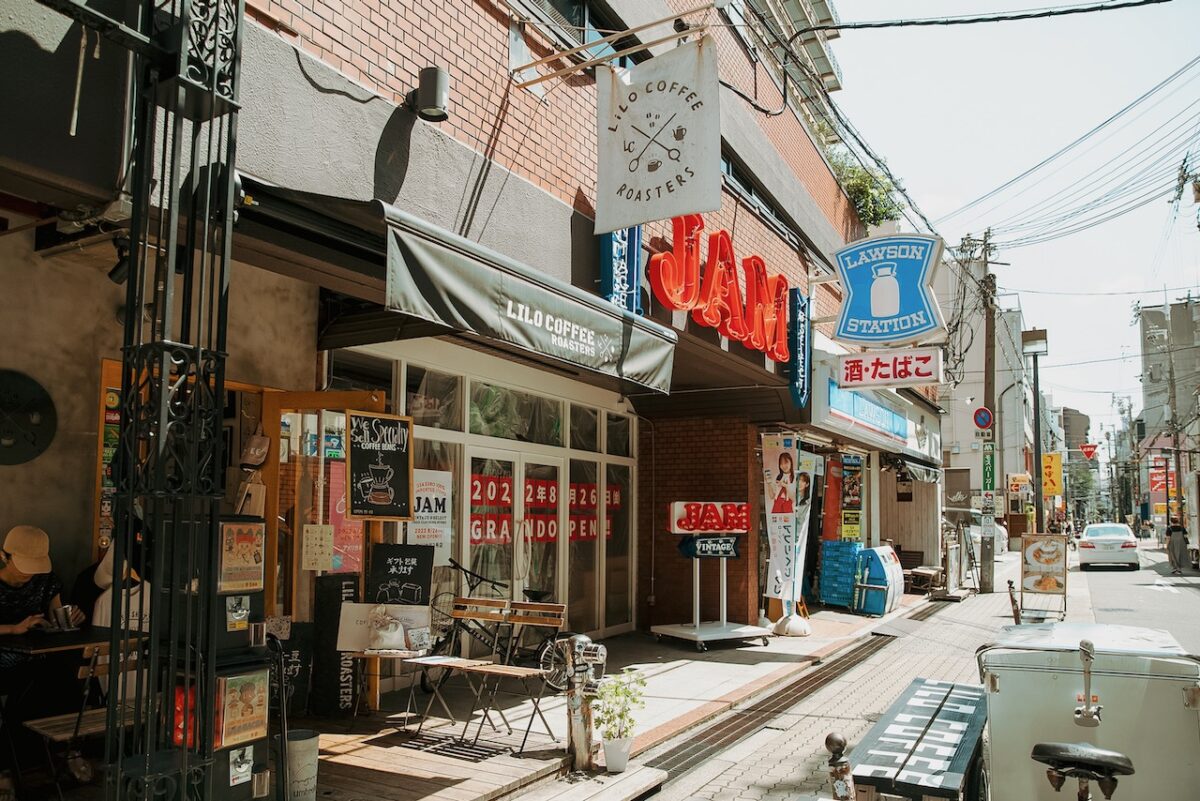
Amerika-mura (American Village) in the Minami district of Osaka is known as an origin of new trends. In this area, also a popular sightseeing spot for tourists from abroad, stands LiLo Coffee Roasters, operating a coffee stand and an authentic kissa-ten coffee house.
Since its founding in 2014, Keita Nakamura, who now works as head roaster, has been cultivating the brand. Nakamura entered the world of coffee in his early 30’s after working various jobs with a dream to become a successful actor. Why is it that Nakamura, who made 10 career changes, has stayed in coffee for a long time? We spoke to him to find an answer by retracing his life path.
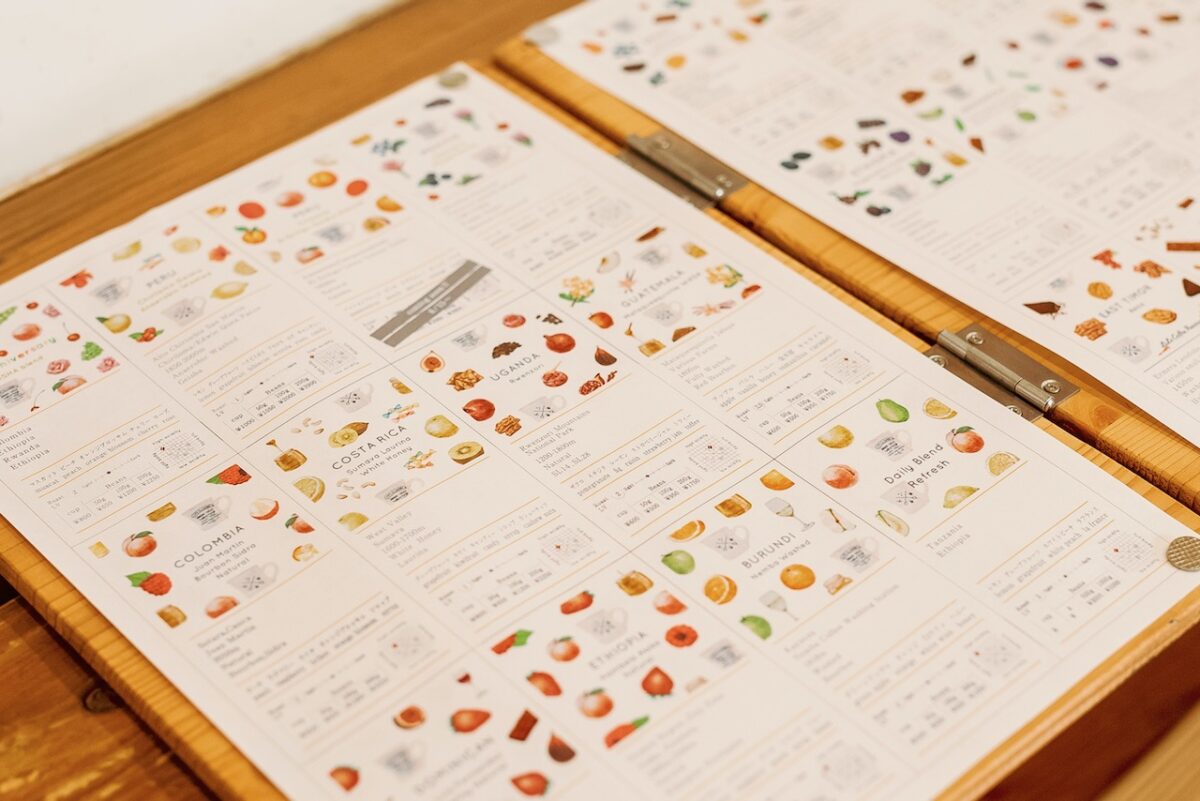
Designing a people’s shop
Have you ever heard of the law of jam? It refers to the outcome of a psychological experiment. In the study, researchers put 6 types of jam and 24 types of jam at tasting areas of supermarkets. They found that people more often reached for samples when they saw 24 types of jam, but the purchase rate was actually higher when just 6 types were on offer.
This experiment shed light on humans’ tendency to be confused by too many choices and thus avoid making a decision. Businesses have applied the finding to their marketing strategy. As if in total disregard for that theory, however, LiLo Coffee Roasters’ menu offers 24 kinds of coffee beans. Prices vary, of course. But they are all treated equally, with none of them receiving a promotional push more than others.
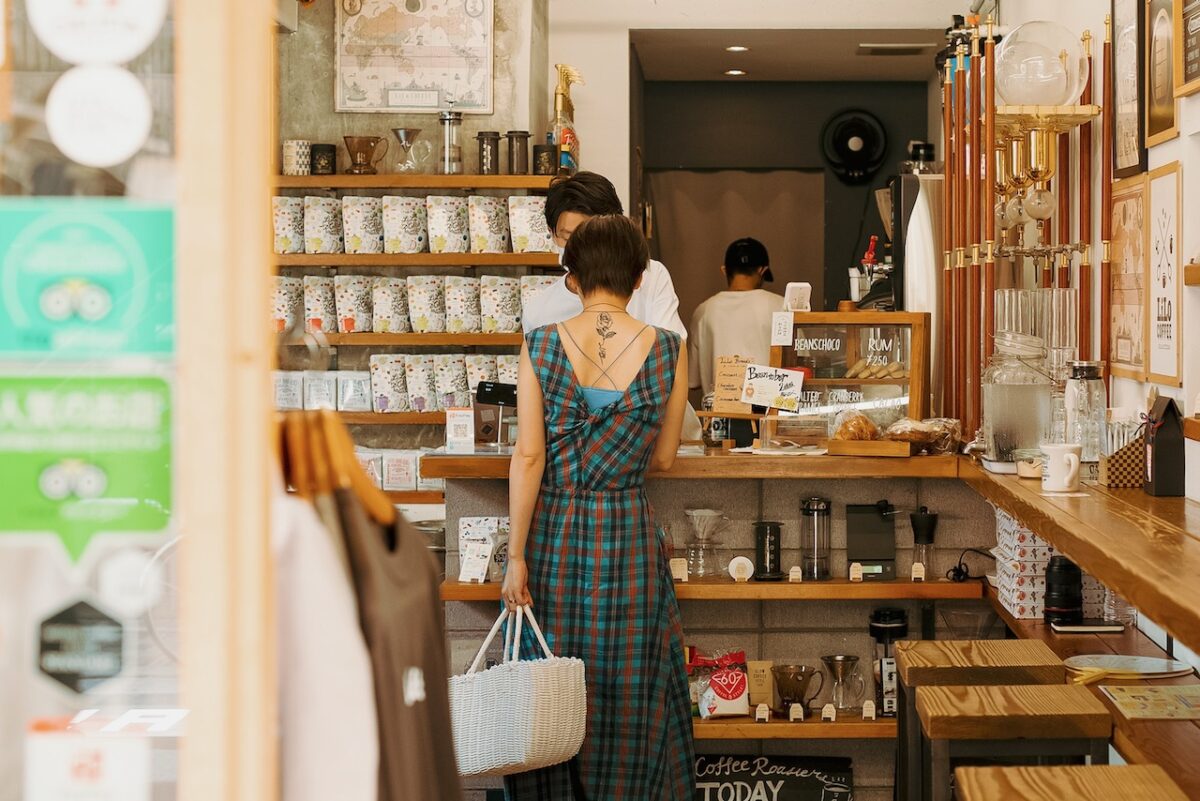
“By making it harder to choose on purpose, we want to initiate a conversation with customers,” says Nakamura. “With improvements in the quality of coffee equipment nowadays, machines are sometimes better than humans at brewing delicious coffee. It wouldn’t be a surprise if vending machines serving delicious coffee are invented someday. When I think about why humans should be there in the process, I feel that I should pursue something that only humans can do.”
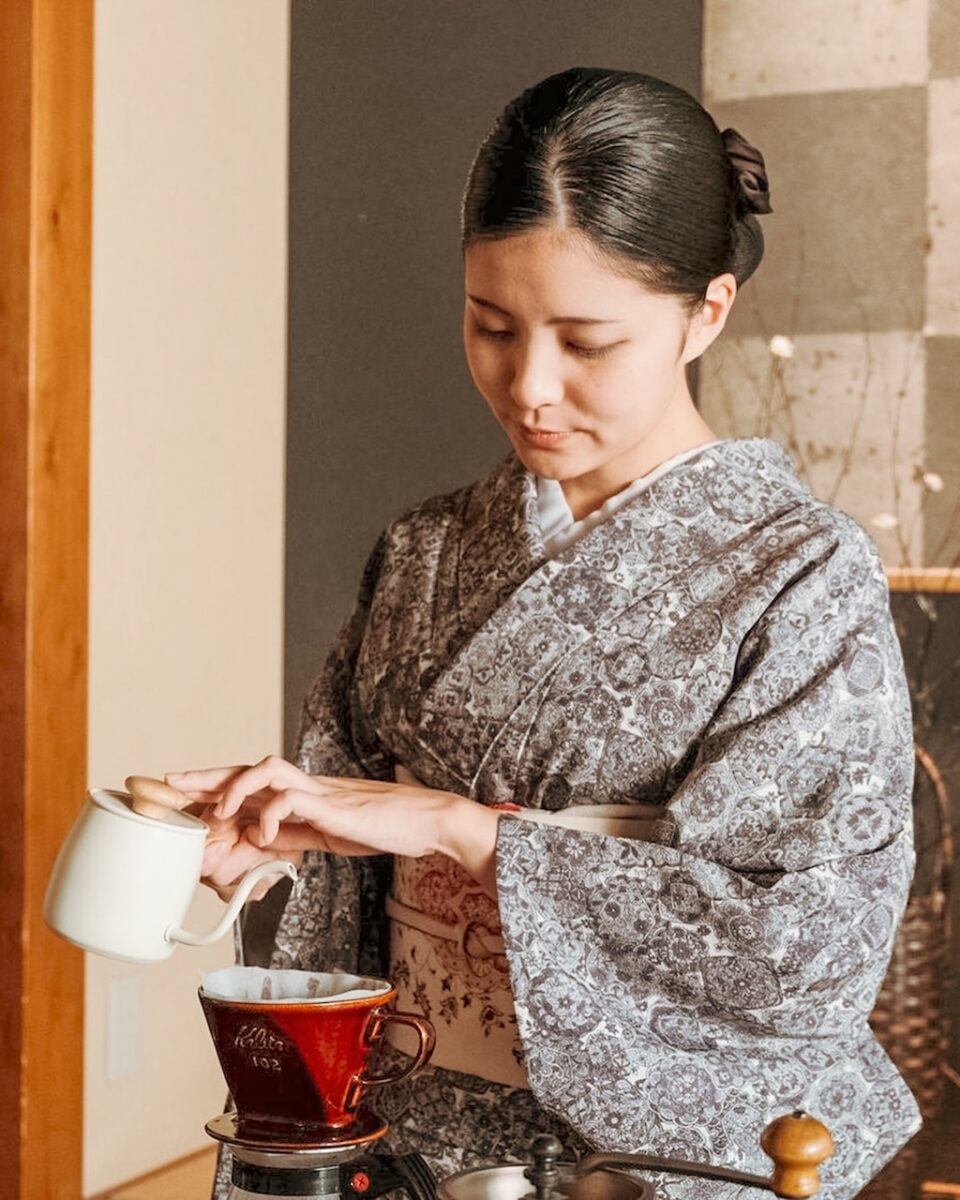
LiLo has been thorough with its emphasis on putting “humanness” front and center. All 12 staff members in its coffee division have their own Instagram accounts, posting about their unique perspectives on coffee and about their day-to-day life. When they serve customers, they hand out business cards adorned with illustrations of their faces as part of efforts to promote themselves, in addition to coffee.
“Some staff members are more popular than others. But that’s just the way it is. Whether they enjoy it or find it tough, that’s where they are tested. In this day and age, I feel that those in the service industry have to see themselves as products to survive this world. LiLo itself has to have a weapon in the form of a bias like “I like this about LiLo” in order to be chosen over places, in addition to ensuring the quality of coffee beans as professionals.”
All 12 staff members at LiLo are on regular contracts. Only about 2% of applicants managed to land a position at the store. More than 10 students have asked to work part-time, but all of them were rejected. Perhaps because everyone who passed the highly selective hiring process has strong determination when they join the company, not a single person has quit at the end of a three-month trial period.
“That said, there are some who quit sometime later. This environment requires some creativity in a sense. I assume the job gradually gets tougher for those who just do the bare minimum every day.”
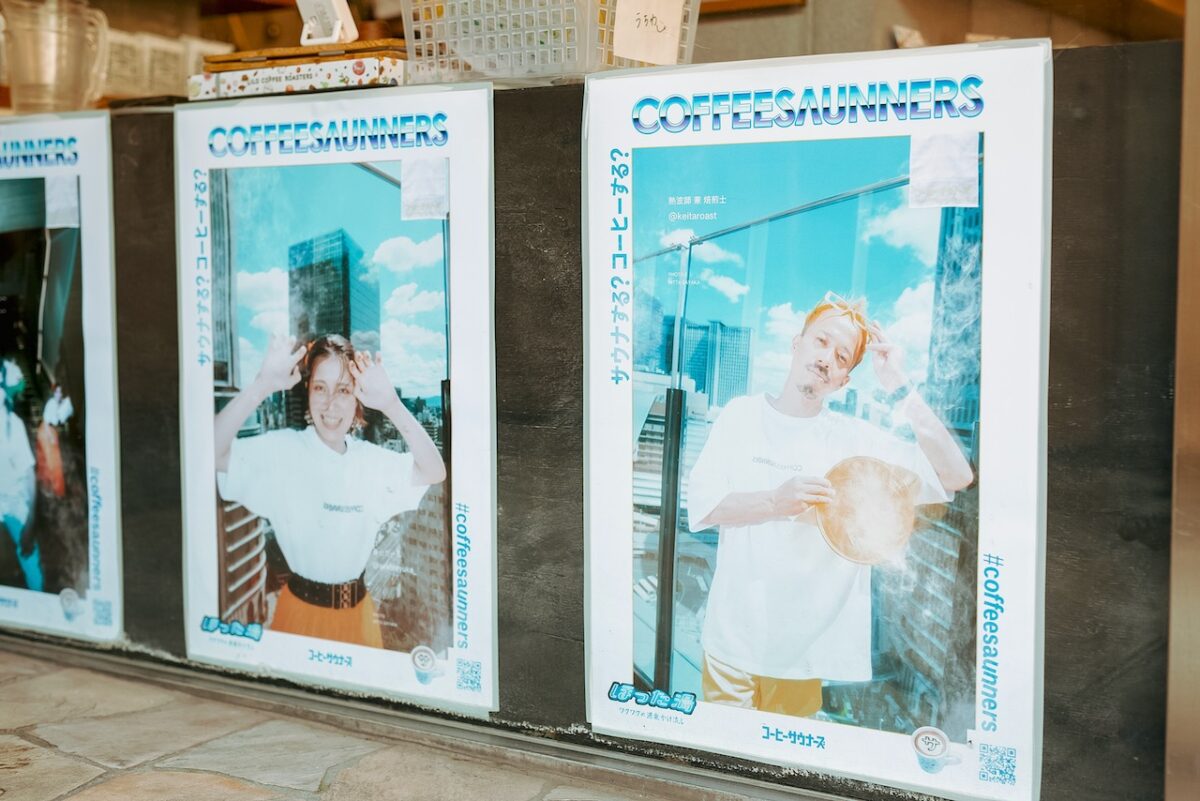
LiLo seeks to help everyone fulfill their utmost, stay interesting and create excitement. By an extension of that philosophy, the company’s take on coffee sees no bounds. In 2022, they launched new ventures, one of them being a gyoza dumpling joint called “Gyoza and LiLo and 〇〇” and another a sauna dubbed “Coffee Saunners.” The gyoza restaurant doesn’t serve coffee in principle. There doesn’t seem to be any common thread between coffee and gyoza. But they are something that people can enjoy with someone else at home.
“We are constantly looking for something we can get excited about and ways to communicate our joy. Personally, I want to do things my heart desires without hesitation. It’s all the more fun if I have a place to express myself.”

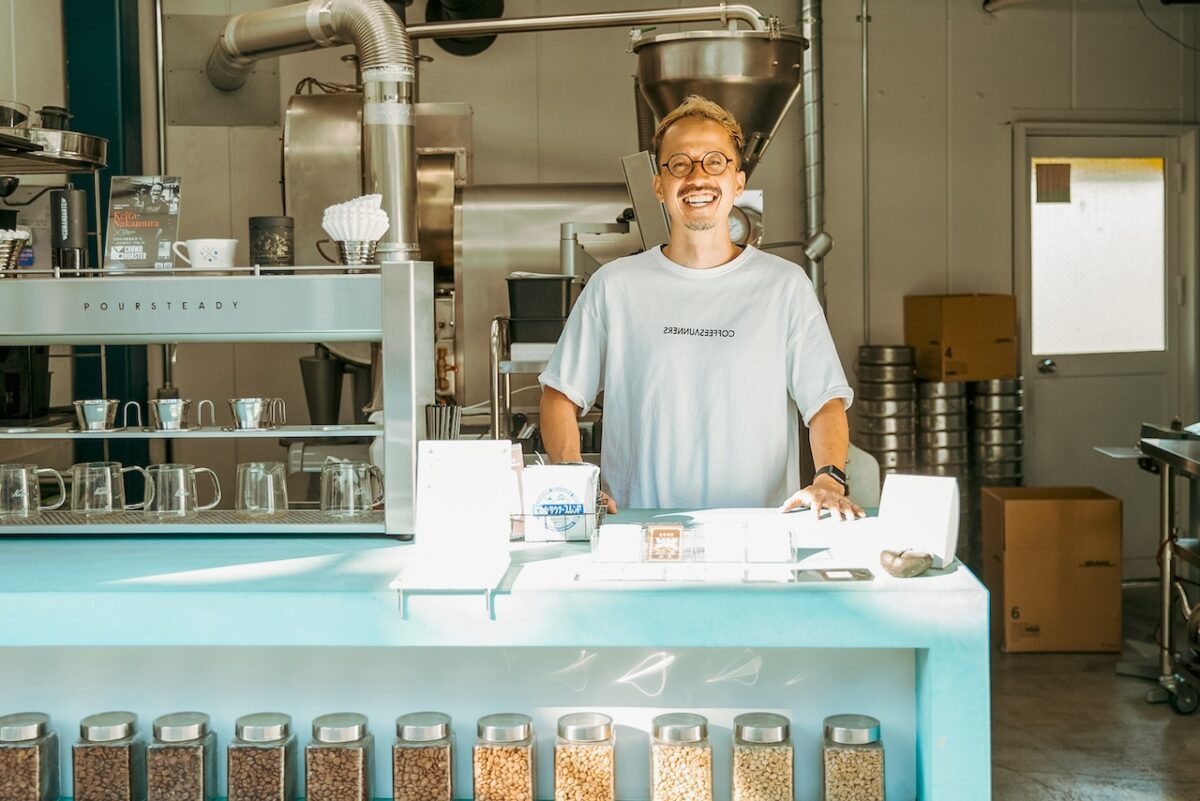
There is no ‘real me’
Sporting a very short blond haircut and glasses and facial hair, this triad of Nakamura’s trademarks has been exactly the same since the day he opened LiLo 8 years ago. To dispel a conventional image of a roaster as someone who is artisanal by nature and hard to talk to, Nakamura started by creating an approachable appearance.
“I feel like playing a mascot character of LiLo all the time. So there is no ‘real me.’ That said, I’m not pretending to be someone else, either. No one can probably recognize me if I take my glasses off, put a facial mask on and pull on a hat. In fact, I used to look normal, with black-hair and glasses and no facial hair.”
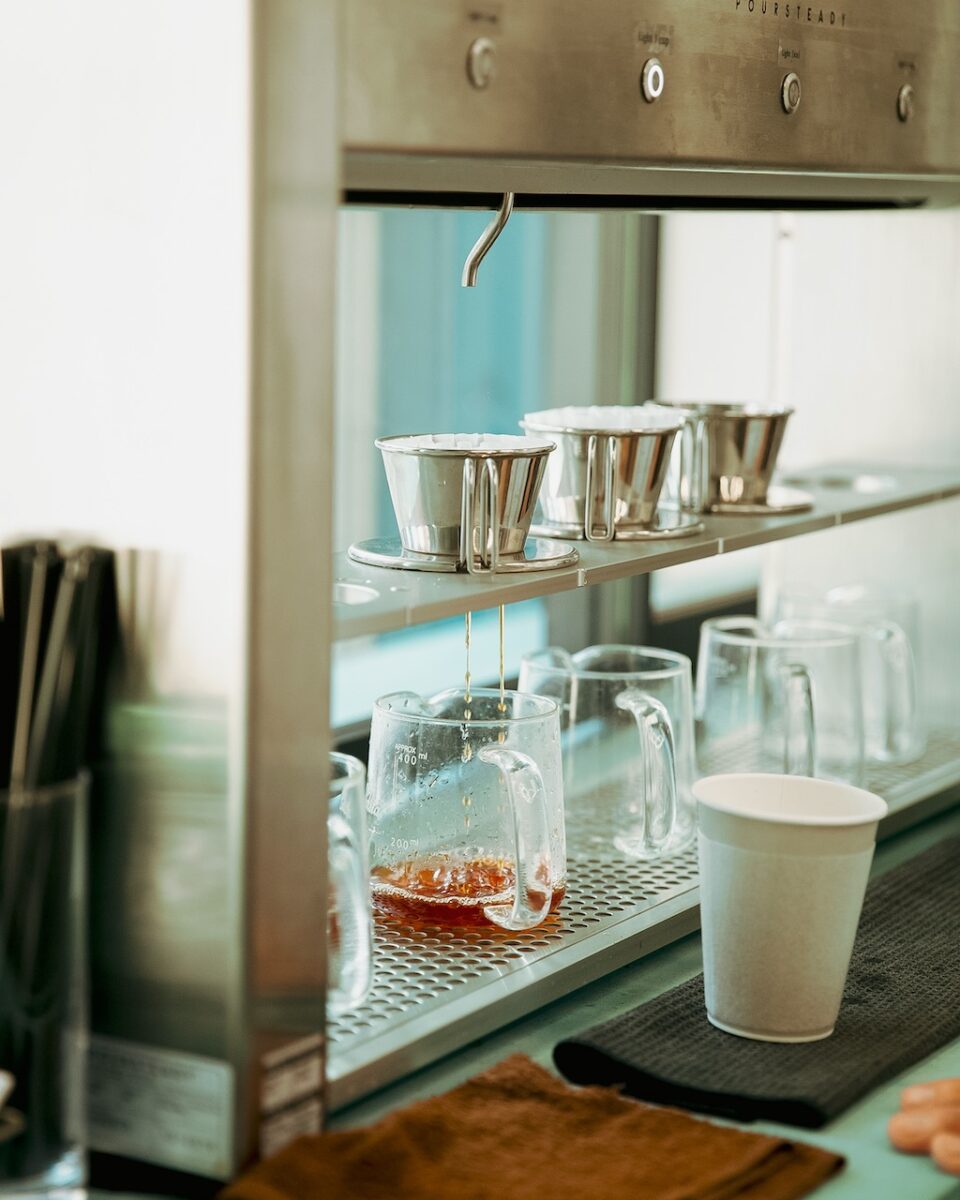
An Osaka native through and through, Nakamura has his roots in his high school days when he did a comedy duo with a friend because he loved comedy so much. There was something addictive about the joy he felt when his stand-up gigs and skits whipped his classmates into frenzied laughter. His head was always filled with a question: “How can I make people laugh?”
But that didn’t lead Nakamura to become a comedian. He knew that he was able to act out a script someone else made for him, but not to create a joke from scratch. Hitting the insurmountable wall, Nakamura saw his limitation with clinical eyes.
Nakamura was a technical school student when he was fascinated by the world of acting. The emotions that welled up inside him only when he uttered lines given to his role, and the ability to meet his new self, brought him the kind of excitement he’d never experienced before.
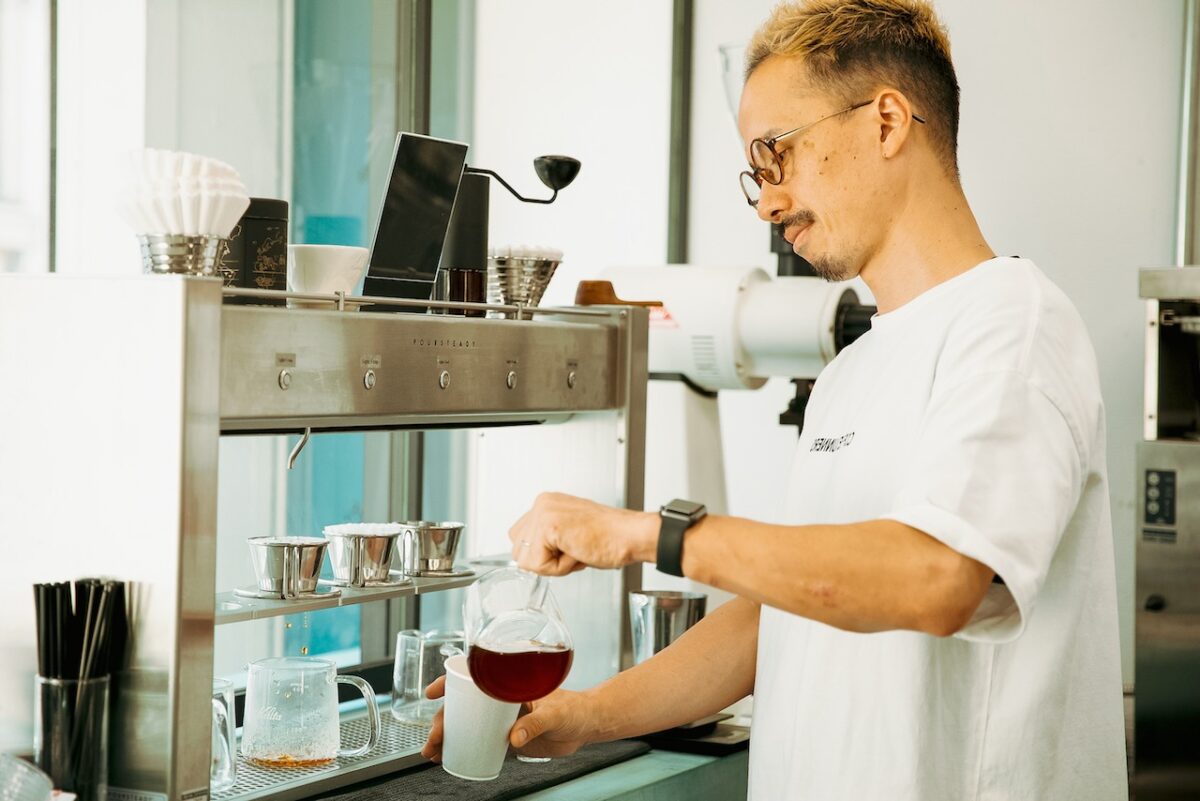
Still, making a living solely by acting comes with an arduous road ahead. Worse, no matter how much time he would spend honing his trade, there was no guarantee that he would be successful. Nakamura worked various jobs while performing in stage plays every now and then as a member of a theater company and a talent agency. Those jobs included a sweets shop worker, a bell boy, a floor staff member at a luxury hostess club in the upscale Kitashinchi area where the average patron paid around 700 dollars per night, and an employee at an amusement firm’s human resources department.
“I worked different kinds of customer-facing jobs in various sectors because I wanted to use the experience as fodder for my acting. I don’t feel like I was working those jobs just to earn an income. I picked them because they seemed interesting.
In my case, when I see someone having fun, then that’s fun to me. That is at the root of everything I do. Whether comedy or customer service, the key driving force was the fact that I was able to see other people’s reactions clearly and instantaneously.”
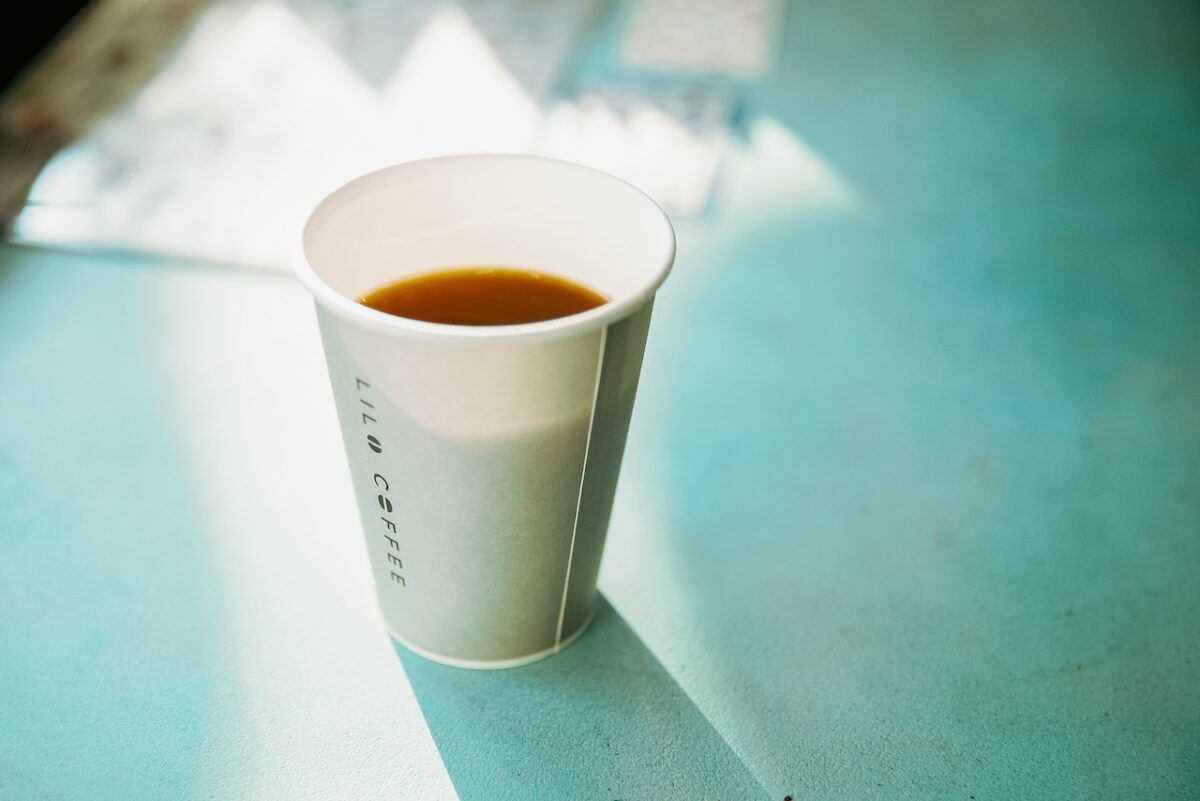
Any feedback is good feedback
Nakamura was in his late 20’s when he was fascinated by coffee. That day, he dropped by a coffee house during a break from work. A cup of coffee he had there took him to another world. It was Ethiopian coffee. Its floral flavor and fruit-like acidity filled his mouth. It was a shocking experience for someone who had only drunken paper-packaged coffees sold at supermarkets and canned coffees.
Only later did Nakamura find out that the coffee house exclusively served specialty coffee. Having learned that there are diverse coffee flavors, he went on to attend coffee seminars and tried brewing coffee at home, using beans he roasted with a coffee roasting net. Nakamura found himself drawn deeper and deeper into the world of coffee.

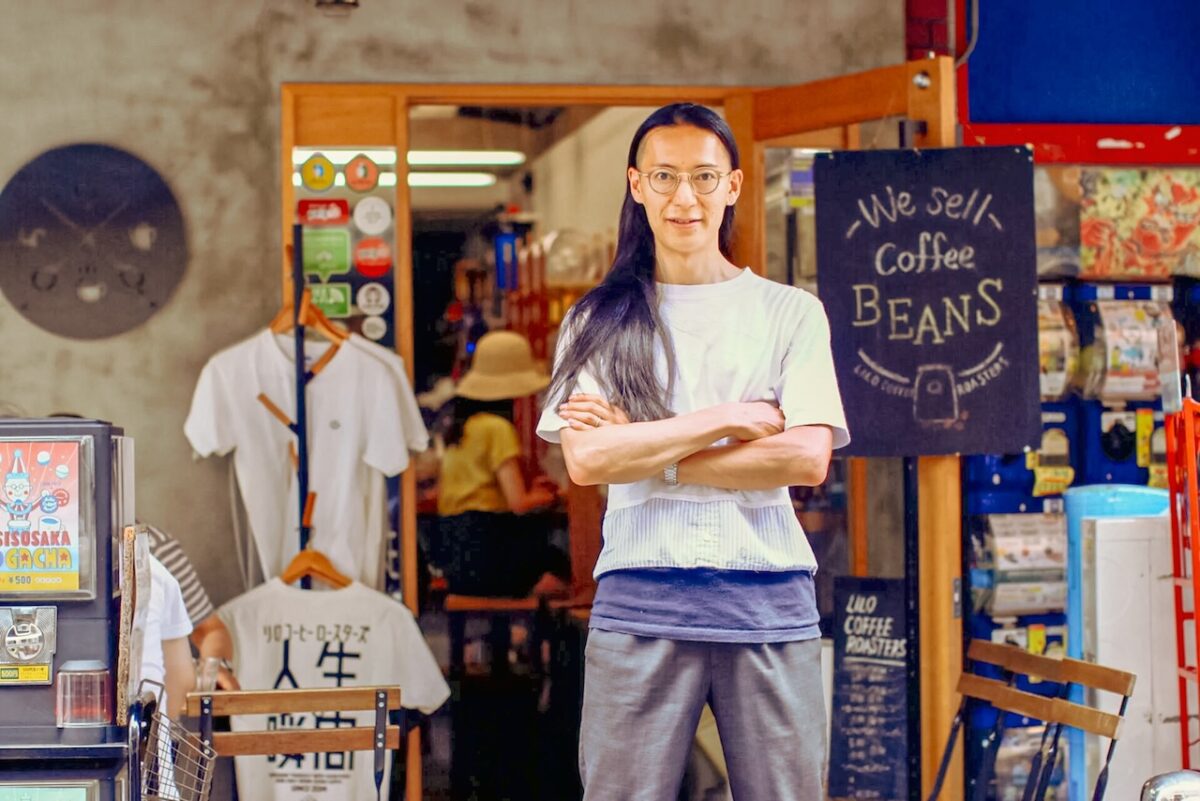
A key person for Nakamura is Kyohei Hotta, the owner of LiLo and a friend from high school. Hotta, who is also a hairdresser, has cut Nakamura’s hair for more than 15 years since their high school days. Horita used to serve his customers coffees he brewed himself at a bar counter he’d created at his beauty salon. One day, he asked Nakamura if he was interested in joining him in opening a coffee roastery.
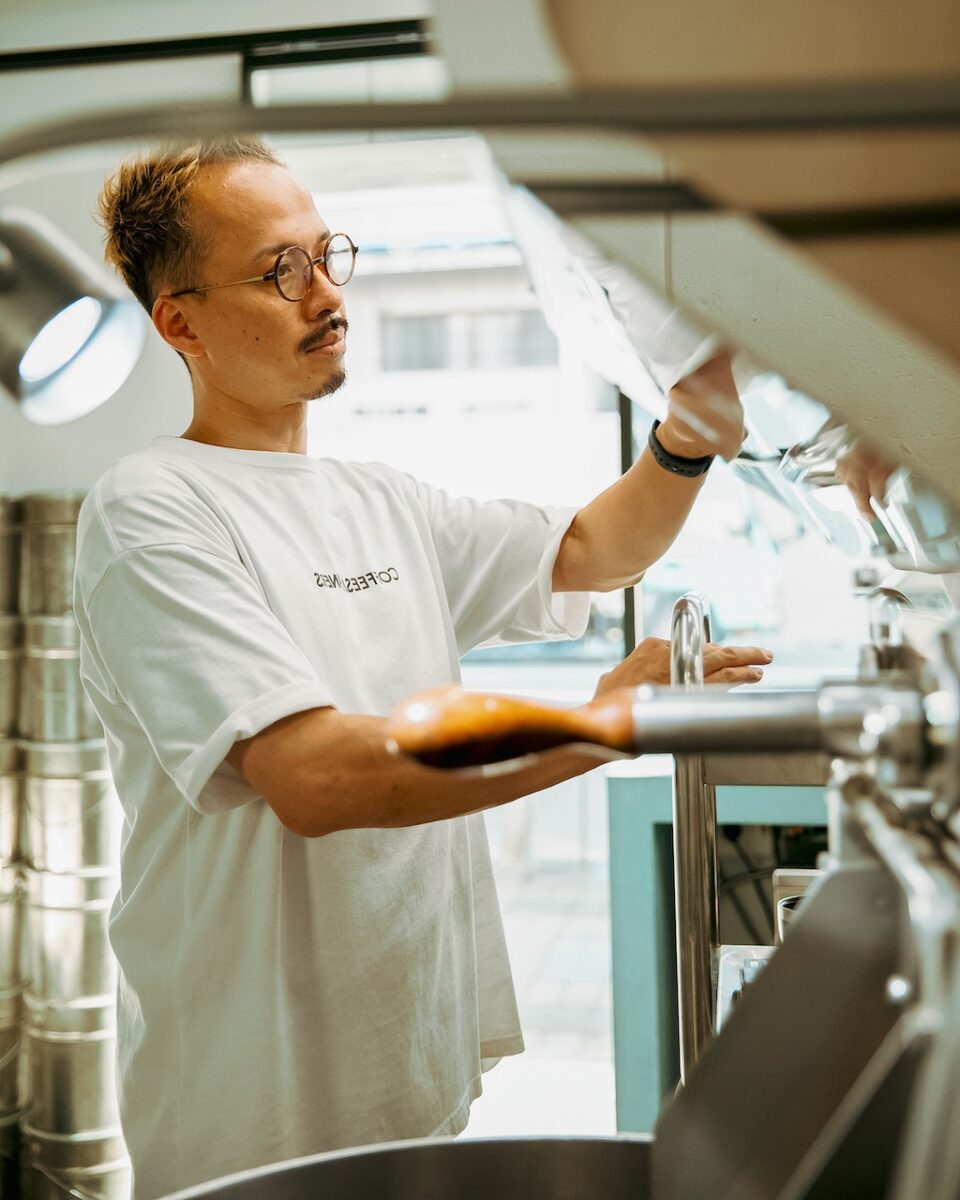
Nakamura was 33 years old at the time, and he had just engaged his girlfriend. He’d already met her parents and announced their engagement, his hair dyed black and with no beard or mustache. But he couldn’t resist the urge springing up from deep inside his heart. Nakamura had no experience using a coffee roaster, but he didn’t have the slightest worry about running a roastery, either.
Making up his mind to enter a new world, Nakamura made a promise with Hotta to shut down the roastery if it failed to turn a profit in one year. A month before the roastery’s opening, Nakamura started living in a roughly 33-square meter room in the shop’s building to learn as much skill and experience as he could, in the shortest possible time. He visited the parents of his fiance once again, this time with a different job and different look, with his now-signature blond hairstyle and facial hair.
Seeing as the room was too spacious for one person to live in, Nakamura placed a roaster and jute bags of green coffee, and laid out a futon mattress in one corner. With little else to speak of, he single-mindedly practiced roasting coffee day in, day out. When the time came to finally open the roaster, he knew he was ready.
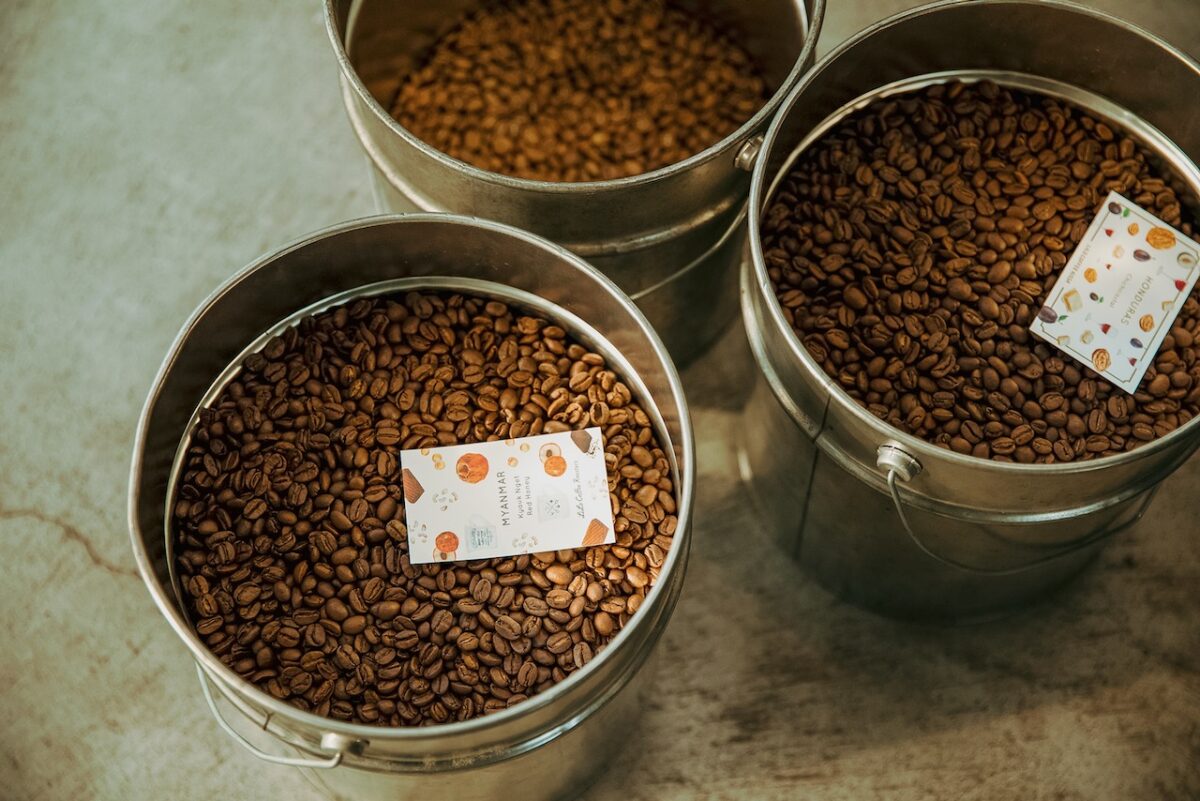
In the early days, though, his coffee often met with harsh feedback, with some customers saying “it tastes rubbish” and so on. Perhaps, his flashy appearance cast him in a negative light, too. But Nakamura is no snowflake. Outwardly, he expressed his sincere apology to his customers. But inside, he was feeling a rush of adrenalin.
“When you are in a customer-facing job, any feedback is a plus, no matter how negative it may be. As a former serviceman at a Kitashinchi hostess club, I saw many patrons who got into a confrontation or full-blown fight but then became regulars later on. I found myself caught up in one of those situations myself, so I know this firsthand. If you handle their complaints in good faith, then they will start to like you. And you get to build a deep relationship with them.”
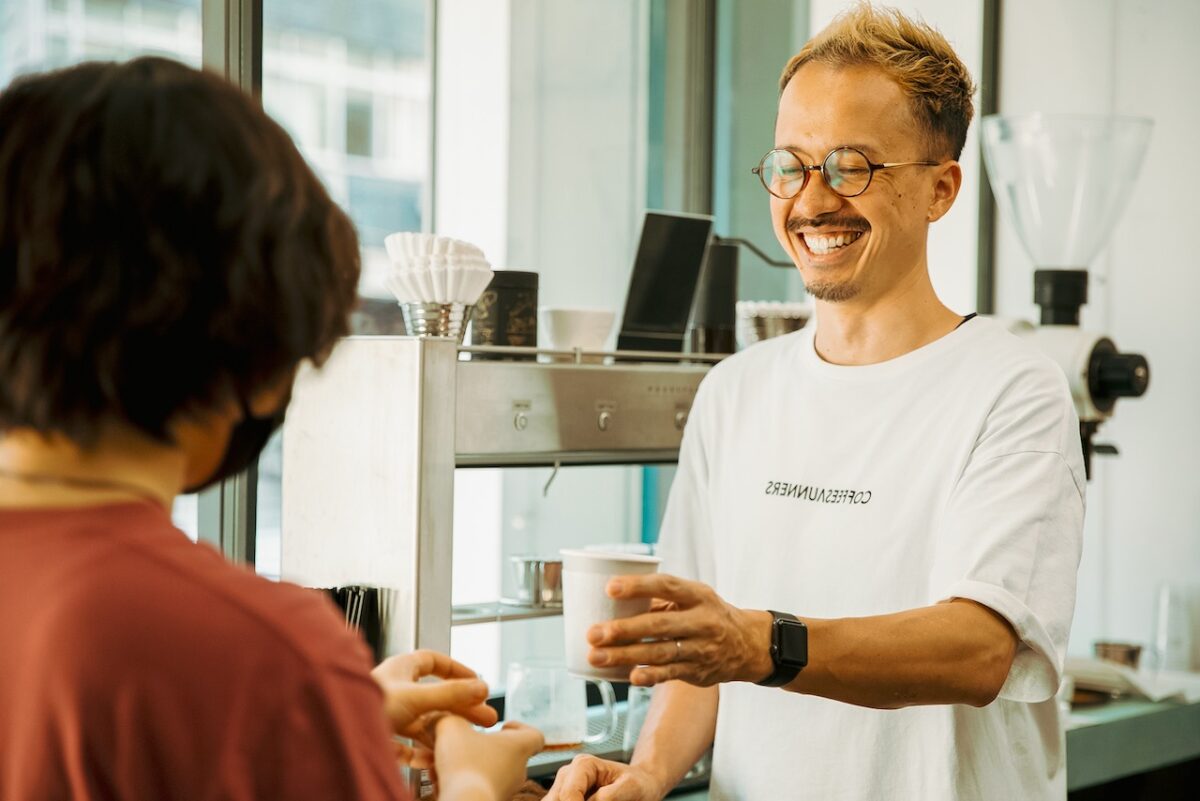
In fact, some of his customers at LiLo who once bashed his coffee as “rubbish” are now regulars. Nowadays, they even tell him his coffee “tastes good”. And whenever they do, Nakamura jokingly asks them, “What was going through your mind when you told me my coffee tasted horrible?” To that, they respond, laughing: “I don’t remember.” Then Nakamura goes on, “I have that on tape. Do you want me to go get it?” This is just one example of interactions between Nakamura and his customers. And every single relationship like this is now part of LiLo’s prized assets.
“Even when I get abusive comments on social media, I give a courteous reply partly because other customers see it, too. I’m thankful to customers for taking an interest in us.”

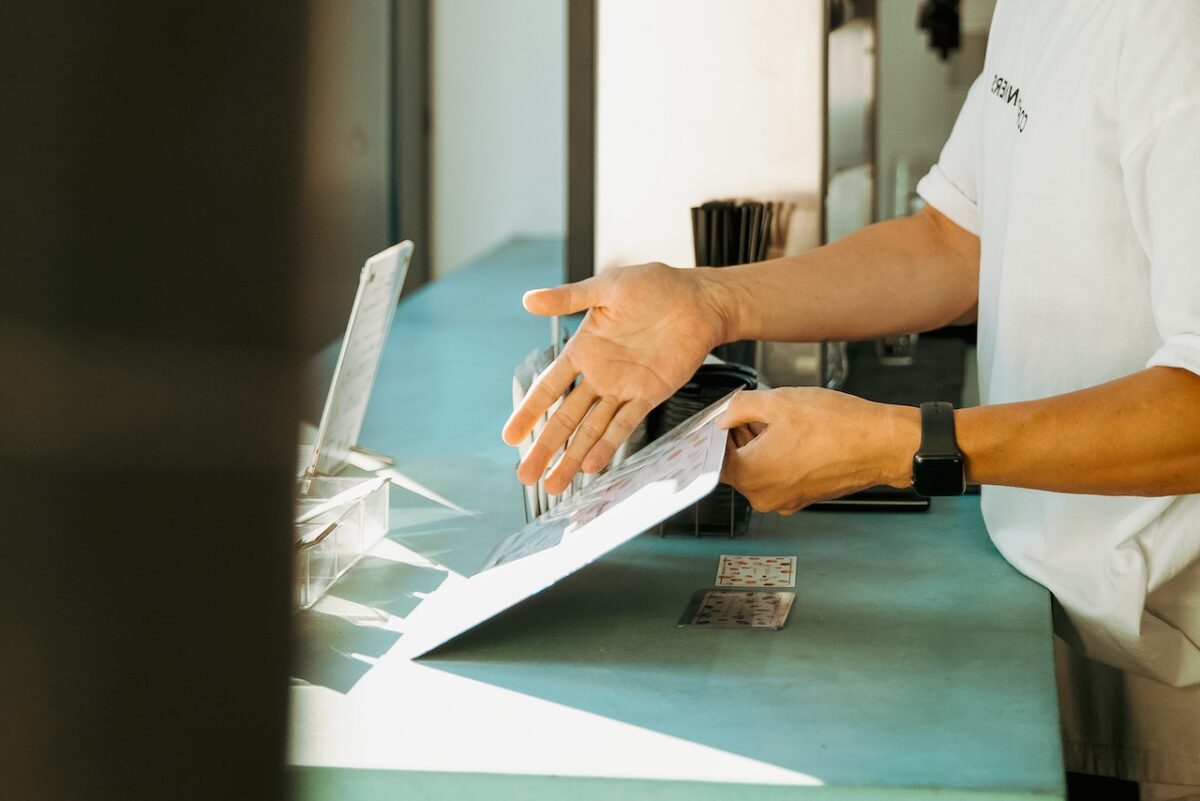
Bringing out character
When Nakamura launched LiLo in 2014, he was single-handedly in charge of everything from roasting to brewing to customer service. Nakamura was determined to turn a profit and seize on the chance. He manned the store from 9 AM to 11 PM. Then afterwards, roasting continued later into the night.
Nakamura did everything he could, and then a turning point came just after the owner decided to continue LiLo and the store was nearing its first anniversary. Nakamura tripped over on a road and broke his left forearm.
Fortunately, he didn’t hurt his dominant right hand. The injury didn’t directly interfere with roasting or brewing. But Nakamura didn’t allow himself to brew coffee in front of customers with his left arm in a cast and a sling because “it felt like doing so would undermine the taste.”

Plus, he couldn’t carry green coffee bags that can weigh up to 60 kilograms. Facing the limitations of running a shop alone, he decided, albeit reluctantly, asked one of his regular customers, a young woman, to help him out. This turn of events prompted Nakamura to put together and expand a team.
“My absence hurt the business, so there were times when I wanted the staff to copy me. But at the end of the day, I realized no one can possibly do exactly what I do. Even if someone could, it wouldn’t be fun for them or me.
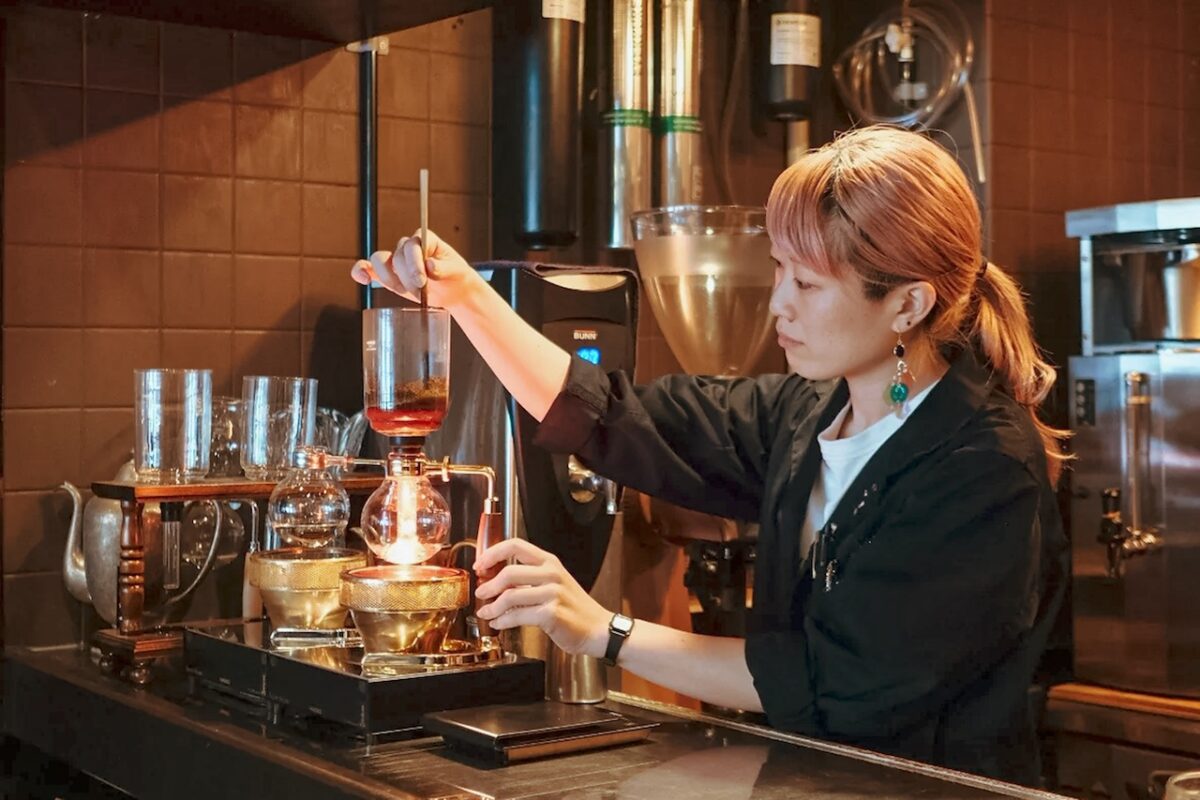
Since I started to try to bring out their own character, they’ve seemed to enjoy working here. Seeing that, I feel respect for them, so there is good synergy.
For instance, Hirona, the store manager at LiLo Kissa, hosted an event titled “Hirona no Yoru-kai (Hirona’s evening party)” to mark the cafe’s 4th anniversary. She introduced 8 kinds of coffee beans by equating them to girls with different personalities. Her own world view was on full display. It didn’t make sense at all, but that was fun. If someone else takes over from Hirona to run LiLo Kissa, maybe the shop’s atmosphere will change, and there might be a change in the clientele. That’s just the way it is.”

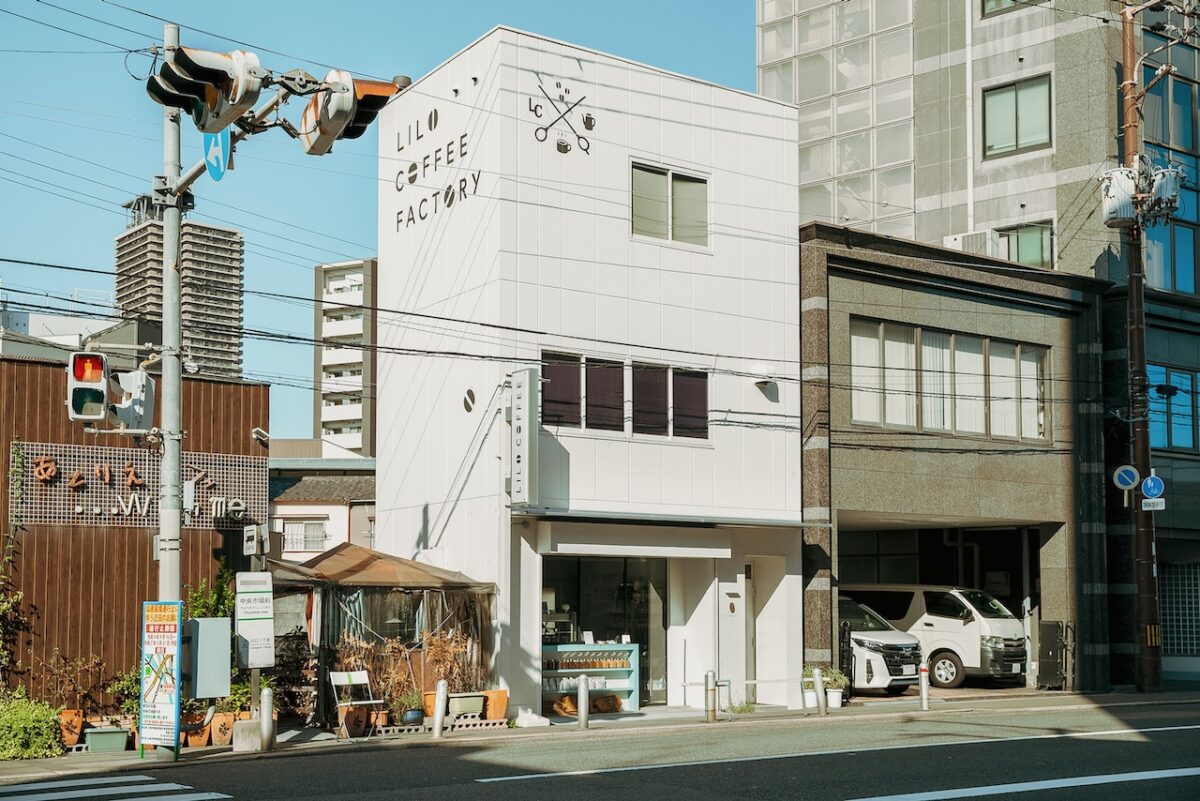
No compromise
Nakamura, now the head roaster at LiLo, splits his time between Factory (a roastery) on weekdays and Roasters on weekends. He takes Wednesday off most weeks. But every so often lately, he can be found at Gyoza and LiLo and 〇〇.
I don’t really feel like this is a job anymore because I’m doing it to have fun. As you can see from my 10 or so career changes, I’m the type to start doing whatever seems interesting without thinking much about what I will do afterwards. I didn’t necessarily quit any job because I got fed up with it.”
It’s been 8 years since Nakamura entered the world of coffee, and more than 10 years including the months he enjoyed coffee as a hobby. No other pursuit lasted as long as coffee has.
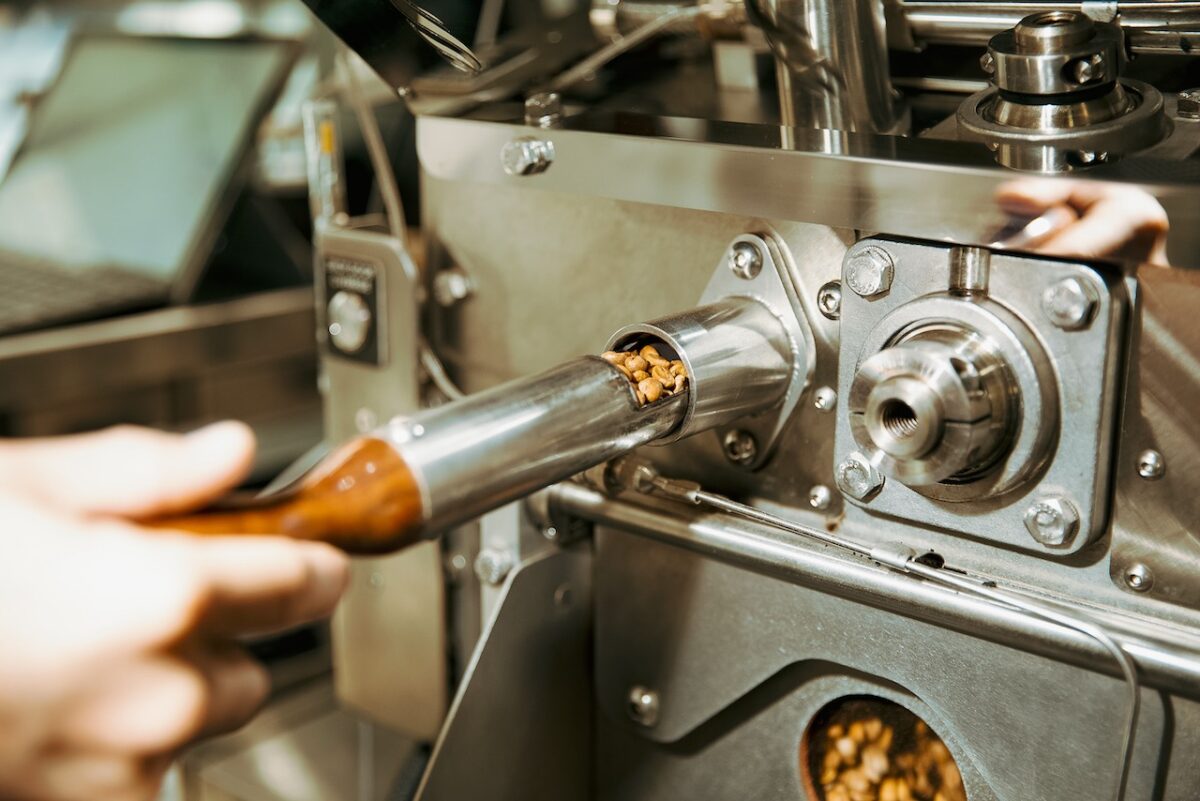
Coffee is quite simple. It’s consumed all over the world in remarkable volume. Nevertheless, there is always something new to discover. That’s why I can’t have enough of it and can always find something fun with it. I think I’ve been doing this for this long because I always believe there is something more to explore.”
That said, many aspects of coffee roasting are routine work. Sure, there are different types of green coffee, different environmental conditions and roasting profiles, and adjustments are necessary according to all these differences. But the process generally remains the same.
Since I’ve been in this job for as long as I have, I’m able to pick up on subtle changes and that gives me some energy. It’s real fun to put together all kinds of invisible pieces of information, try to figure out the conditions of beans and do what I can to amplify their appeal. I have a low bar for enjoyment, and I can have fun doing little things. After all, what’s life without fun?”
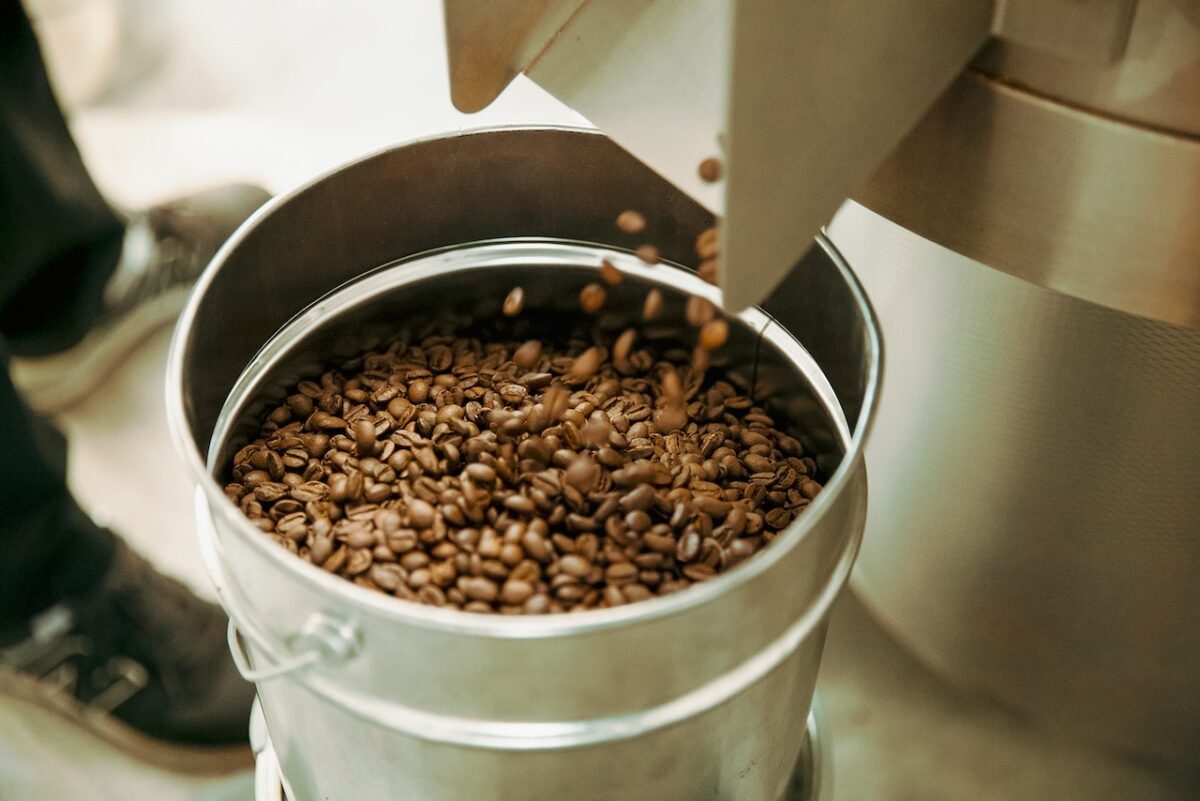
Nakamura says making something from scratch isn’t his forte; rather, he excels at taking something that already exists and building on it. For someone like him, Hotta is the best partner he could ever ask for. Thanks to his unique, seemingly outlandish ideas of furnishing his beauty parlor with a bar counter and opening a gyoza dumpling joint and a sauna, Nakamura is able to keep his foot firmly on the gas.
“But at the same time, Hotta is also someone who pumps the brakes for me. I tend to get tunnel-visioned and move in a single direction. That’s when he corrects my course from a broader perspective.”
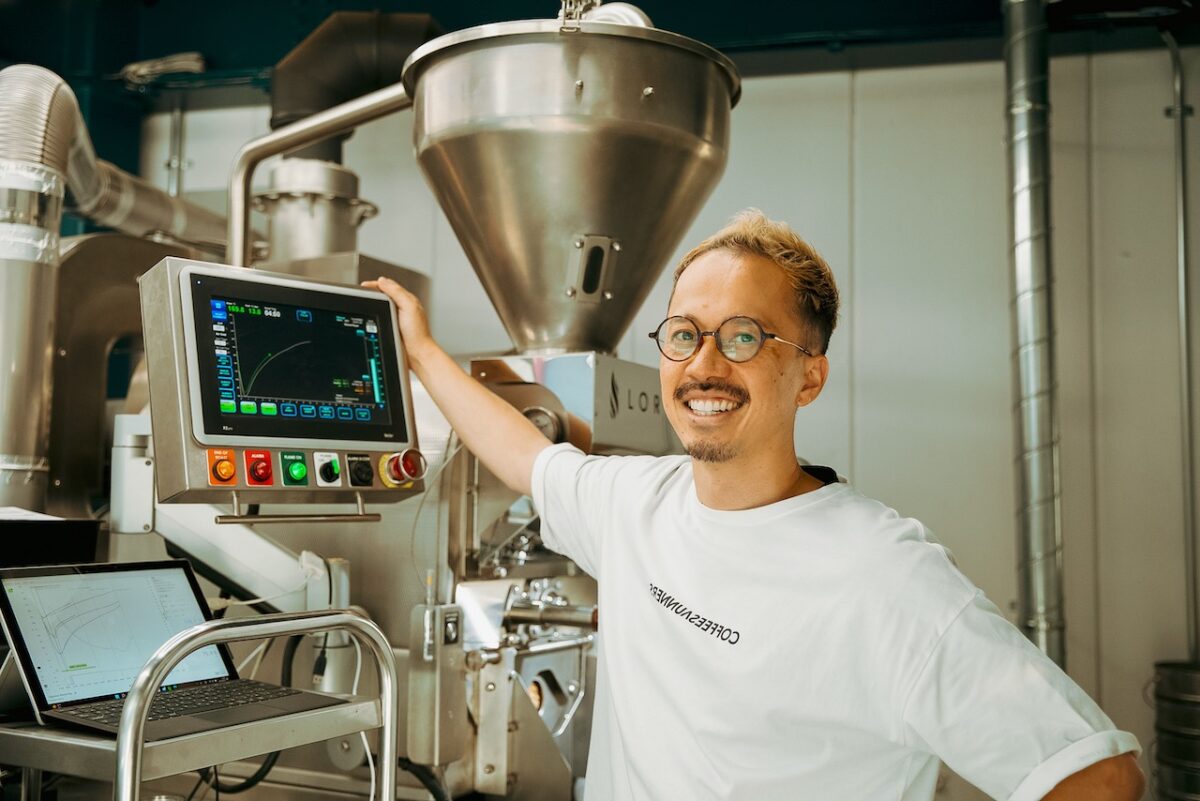
The choices Nakamura has made in his life were always binary. When things go south, either he tries to enjoy the situation or he moves on and finds other sources of fun. He makes no compromise to keep doing things that he doesn’t enjoy. With his philosophy and actions always consistent, Nakamura has lived his life without putting the brakes for himself.
“I know that my performance and productivity take a dive if I’m not having fun. I’m like a child, in a way. Those who seem to be having fun attract people. LiLo has a hand in a lot of different things. But at the end of the day, we want to send a message that it’s better to have fun. Coffee changed my life. I want as many people as possible to experience the same thing.”
Originally written in Japanese by Tatsuya Nakamichi
Photos by Misa Shinishi
MY FAVORITE COFFEE
My favorite coffee is one that my staff makes for me. Before they brew, they consider many different varieties and brewing methods. When I drink it, I try and imagine their intentions, why they choose the coffee, and why they brew it the way they did. Of course, sometimes my guess is way off the mark, but that’s the fun. Moments like that remind me that coffee is a hub that can bring people together.









